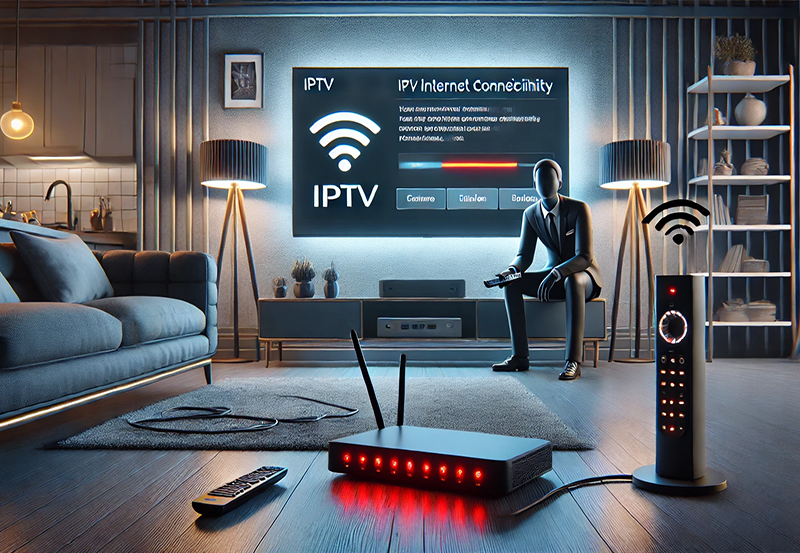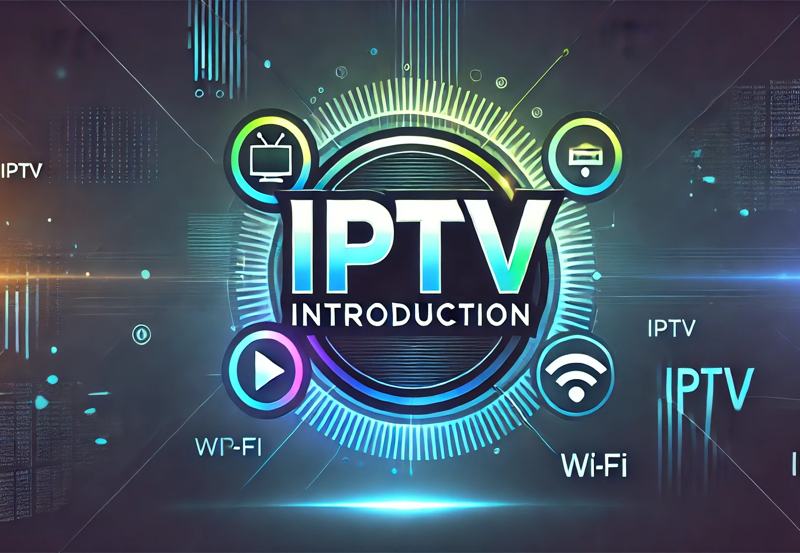Understanding IPTV and Its Benefits
IPTV, or Internet Protocol Television, represents a rapidly growing form of broadcasting television content over the internet. Unlike traditional cable or satellite services, IPTV provides a more flexible and interactive viewing experience. As its popularity continues to soar, understanding its nuances becomes essential for anyone keen on maximizing the enjoyment derived from this technology.
With the growing trend of live TV streaming, IPTV stands out as a revolutionary way to consume media. Its advantages lie in the rich variety of content it offers. Subscribers get instant access to a vast array of channels and on-demand videos, leading to what many call “The Expert’s Guide to IPTV Enjoyment.” However, like all technology, IPTV is not immune to setbacks, one of the most common being signal drops.
Understanding the workings of IPTV can be incredibly useful for users. Notably, it reshapes television watching by allowing users to pause, rewind, and even record live broadcasts, making it a formidable alternative to conventional TV broadcast methods.
Buy 1 Year IPTV Subscription and Enjoy Unlimited Content
Why Choose IPTV Over Traditional TV?
- Flexibility: Watch what you want, when you want.
- Cost-effective: Often cheaper than cable subscriptions.
- Customization: Tailor your viewing package to your preferences.
Choosing IPTV can lead to a profound shift in viewing habits, helping users tailor their entertainment experiences with greater freedom. Thus, knowing how to manage potential issues, like signal drops, becomes paramount to uninterrupted enjoyment.
Identifying Causes of IPTV Signal Drops
Signal drops can be frustrating, interrupting the seamless experience that IPTV promises. To tackle these interruptions effectively, one must first understand the common culprits behind them. Knowing where the problem originates is half the battle won in ensuring your IPTV service airs without a hitch.
Several factors contribute to IPTV signal drops, most of which stem from network-related issues. Your internet connection plays a crucial role in maintaining an uninterrupted streaming service. Sometimes, mere fluctuations in internet speed can lead to annoying buffering or even total signal drops during live TV streaming.
Network Strain and Bandwidth
At times, excessive load on your home network can account for the inconsistencies you experience with IPTV. With multiple devices connected to the same network, the bandwidth can get spread thin, resulting in subpar IPTV performance.
Solutions for Network Strain
- Limit the number of active devices on your network while streaming.
- Upgrade to a higher-speed internet package to handle more bandwidth.
- Use wired connections rather than relying solely on Wi-Fi, especially for streaming.
Ensuring your network can handle IPTV’s demands is vital for maintaining a stable connection. Simple adjustments to your network’s configuration can often resolve persistent signal drop issues.
Device Compatibility Issues
IPTV on Roku and other platforms showcases the flexibility of the service; however, compatibility issues may arise depending on the device’s make and model. Outdated software or device firmware can further exacerbate these issues, affecting the streaming quality.
Make sure your devices are updated regularly and that they’re compatible with your chosen IPTV service. This can often clear up many of the hiccups experienced while streaming.
Improving IPTV Performance
After identifying possible issues, improving IPTV performance becomes the next logical step. With careful attention to detail, users can dramatically enhance their viewing experience. Let’s go over some proven strategies to bolster your IPTV performance, ensuring you get the most out of your service.
Whether it’s tweaking your network settings or updating application software, there are numerous ways to alleviate signal drops. Not only do these strategies help in optimizing performance, but they also safeguard against future technical adversities.
Optimizing Network Settings
For IPTV, network settings play a significant role in determining streaming reliability. By making sure that your settings are correctly configured, you can prevent many of the issues that lead to signal drops.
Steps to Optimize Network
- Enable Quality of Service (QoS) settings on your router to prioritize streaming data.
- Regularly update your router’s firmware to benefit from the latest performance enhancements.
- Position your router centrally to maximize Wi-Fi coverage and reduce interference.
By fine-tuning these settings, you can establish a more robust connection, reducing the chances of experiencing disruptive signal drops when using IPTV services.
Updating Application and Firmware
Often, IPTV signal drops can stem from outdated applications. Regular updates not only keep the app running smoothly but can also introduce improvements that help combat streaming interruptions.
Make it a habit to check for software updates periodically. This ensures that you have access to the latest features and fixes that significantly enhance your overall streaming performance.
Advanced Techniques for Problem Solving
For more persistent issues, advanced troubleshooting techniques may be required. These methods not only demand an understanding of your IPTV setup but also a willingness to experiment with various settings and configurations.
While more technical, these strategies are designed to root out inherent problems that simpler solutions failed to correct, offering more tailored adjustments that can lead to a markedly better IPTV experience.
Exploring Network Diagnostics Tools
Network diagnostics tools serve as invaluable assets in pinpointing and correcting network-related glitches. By identifying the precise reason for the interruptions, these tools help create a more stable IPTV environment.
The decision to utilize these tools can often lead to swift resolutions, assisting in identifying whether the problem originates from hardware deficiencies or incorrect network configurations.
Consulting Technical Support
If all else fails, reaching out to your IPTV provider’s technical support team may be the best course of action. They can offer insights specific to your subscription plan and device configurations, often providing quick solutions to vexing problems.
Technical support teams are adept at discerning users’ issues, offering professional advice tailored to rectify even the most stubborn IPTV signal drops.
How to Stream Safely with IPTV Using a VPN
A Holistic Approach to IPTV Enjoyment
Ultimately, ensuring an uninterrupted IPTV stream requires a holistic strategy. By understanding the complex interplay between your device, network, and service provider, users can transform potential frustrations into simple troubleshooting tasks.
Every user’s setup is different—embracing this diversity can mean the difference between annoyance and seamless viewing pleasure. Knowing when to tweak a setting or call for expert help can result in an enriched IPTV experience.
Commitment to Continuous Improvement
Constantly evaluating your IPTV setup helps in adapting to evolving technological standards. As updates rollout and new devices emerge, acquainting oneself with the latest enhancements guarantees a smoother viewing process.
Commit to staying informed, utilizing resources, and exploring new solutions. The possibility of IPTV friction can quickly give way to harmony with the right tools and knowledge.
Engaging with Community and Expertise
Being part of a community of IPTV users provides shared experiences and solutions that may not be readily apparent. Engaging with experts and fellow subscribers can offer fresh insights and novel solutions.
Forums, blogs, and user groups serve as platforms for discussing concerns, exchanging advice, and uncovering tricks that may significantly boost your IPTV enjoyment.
FAQ Section

What causes frequent IPTV signal drops during live TV streaming?
Frequent signal drops are usually due to insufficient bandwidth or high network traffic. Evaluating your internet speed or upgrading your service can often mitigate these issues.
Is IPTV on Roku affected by outdated software?
Yes, using outdated software can impact IPTV performance on Roku devices. Ensure that your software is up-to-date to prevent any compatibility issues.
How can network interference impact IPTV streaming?
Network interference, such as from other electronic devices, can hamper Wi-Fi signals, leading to poor streaming quality. Positioning your router correctly or using wired connections can help alleviate this.
Can router settings affect IPTV signal quality?
Absolutely. Utilizing features like Quality of Service (QoS) and keeping firmware updated can prioritize IPTV traffic, enhancing your streaming experience.
How often should one update their IPTV app or device firmware?
Regular updates are crucial. Check for updates monthly, although many apps notify users of new updates, some might require manual checks.
Should I consult technical support for solving IPTV issues?
If basic troubleshooting fails, consulting your provider’s technical support can be beneficial. They offer tailored solutions that accommodate specific setups and plans.
what is VlC player and how can install?




